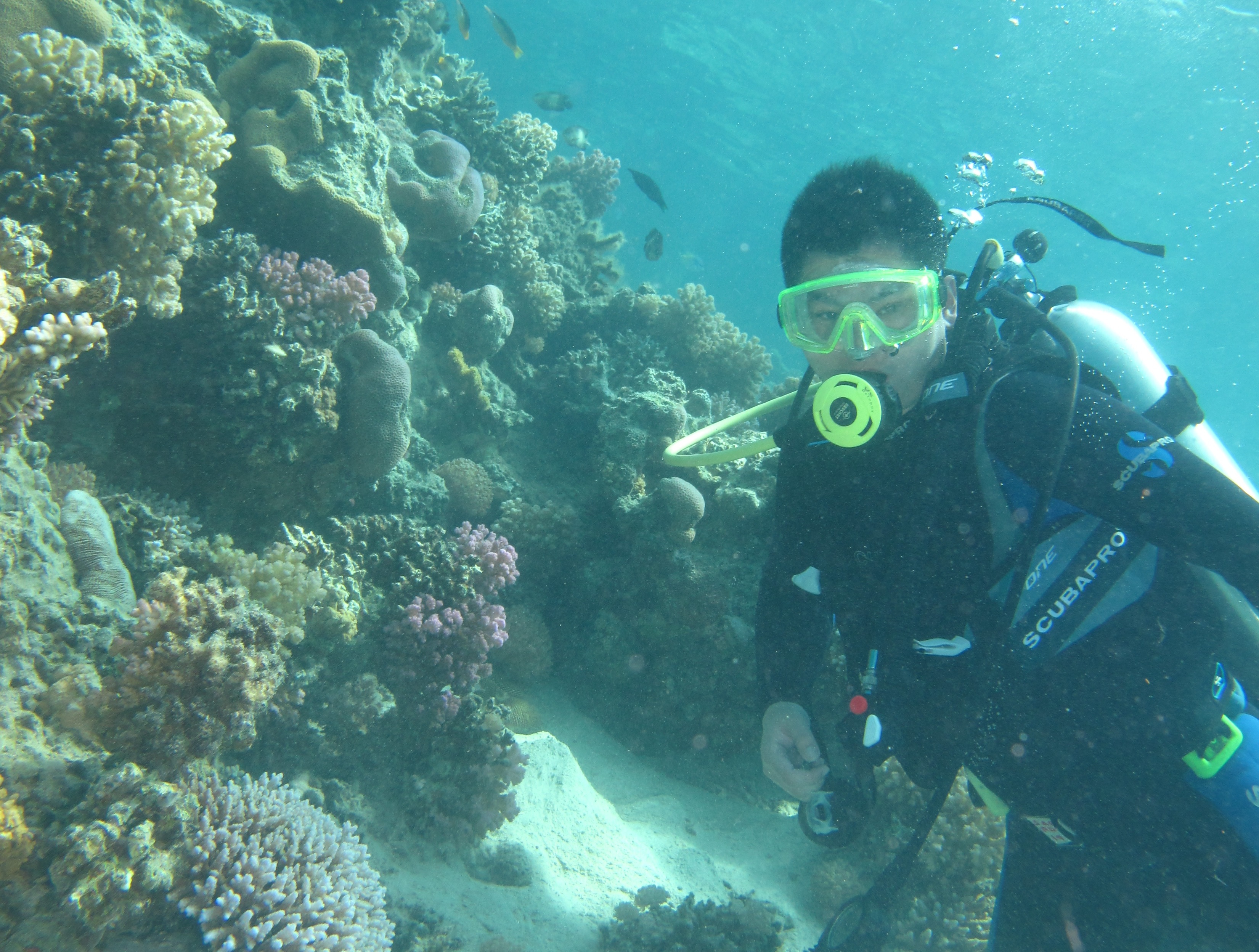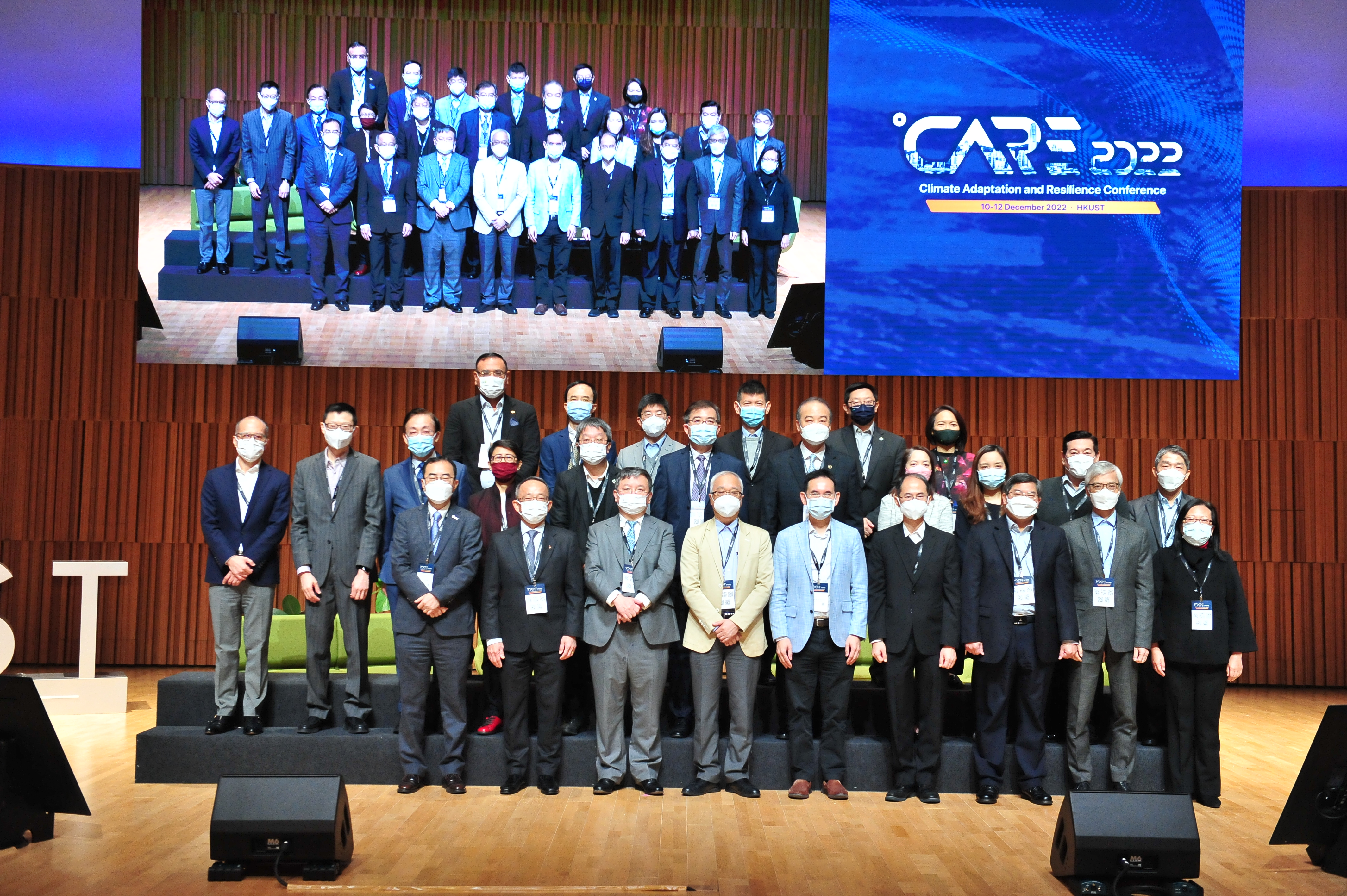Master of Philosophy in Atmospheric Environmental Science
Doctor of Philosophy in Atmospheric Environmental Science
哲學碩士 ( 大氣環境科學 )
哲學博士 ( 大氣環境科學 )
MPhil(AES)
PhD(AES)
Both full- and part-time
MPhil
Full-time: 2 years
Part-time: 4 years
PhD
Full-time: 3 years (with a relevant research master’s degree), 4 years (without a relevant research master’s degree)
Part-time: 6 years
PG Programs Coordinator (RPg program):
Prof Eun-Soon IM, Associate Professor of Environment and Sustainability

The Master of Philosophy (MPhil) Program aims to train students to conduct independent research in Atmospheric Environmental Science. A candidate for an MPhil degree is expected to demonstrate knowledge in the discipline and to synthesize and create new knowledge, making a contribution to the field.
The Doctor of Philosophy (PhD) Program seeks to train students in original research in Atmospheric Environmental Science and to cultivate independent and innovative thinking that is essential for a successful research career in environmental science. A candidate for a PhD degree is expected to demonstrate mastery of knowledge in the chosen discipline and to synthesize and create new knowledge, making an original and substantial contribution to the discipline.
Currently, the research concentrations include:
- Aerosol physics and chemistry
- Air quality modeling and data analysis
- Atmospheric chemistry
- Environmental sensing and measurement technology
- Global and regional climate modeling
- Health effects of air pollutants
On successful completion of the MPhil program, graduates will be able to:
- Demonstrate up-to-date and in-depth knowledge of areas of their specialization and in atmospheric environmental science in general.
- Apply experimental or modeling techniques/skills for investigations of problems in atmospheric science.
- Conduct directed research, develop experimental/modeling protocols and interpret results.
- Communicate effectively the results of scientific research in writing and by oral presentation.
On successful completion of the PhD program, graduates will be able to:
- Demonstrate up-to-date and in-depth knowledge of areas of their specialization and in atmospheric environmental science in general.
- Apply experimental or modeling techniques/skills for investigations of problems in atmospheric science.
- Conduct independent research, propose laboratory/field/modeling experiments, develop protocols, evaluate results and formulate hypotheses.
- Communicate effectively the results of scientific research in writing and by oral presentation.
- Evaluate and critique current research, approaches and methodologies in atmospheric environmental science.

Offered by the Division of Environment and Sustainability, the programs are supported with the following research foci and state-of-the-art facilities. It aims to provide students with a deeper understanding of environmental science and related policies so as to help increase their abilities in tackling the environment and generating meaningful solutions.
Research Foci
The Division’s main areas of focus are:
- Air and Health
- Climate Adaptation and Resilience
- Sustainable Finance and Net Zero Solutions
We also work at the points where these areas intersect, such as the scientific understanding of management strategies and policy formulations.
Facilities
HKUST has excellent central facilities and equipment to support the Program’s teaching and learning. These include: Environmental Central Facility, the Air Quality Research Supersite Facility, Volatile Organic Compounds (VOC) Laboratory, realtime air quality and meteorological forecasting systems, satellite receiving systems and Geographical Information System.
-
Minimum Credit Requirement
MPhil: 9 credits
PhD: 12 credits
-
Credit Transfer
Subject to approval of the PG Coordinator, PhD students who have taken the HKUST MPhil Program in Atmospheric Environmental Science will be granted credit transfer of up to a maximum of 9 credits. Students admitted to the MPhil/PhD program with a relevant master’s degree may be granted credit transfer on a case-by-case basis. In such case, the maximum number of credits transferrable is 6.
-
Core Course
-
Elective Courses
MPhil: 6 credits, including:
-
3 credits from the following course list; and
-
3 credits of approved postgraduate course endorsed by the Program Director.
PhD: 9 credits, including:
-
6 credits from the following course list; and
-
3 credits of approved postgraduate course endorsed by the Program Director.
No more than 6 credits of 4000-level courses can be used to fulfill the requirement
-
Graduate Teaching Assistant Training
All full-time RPg students are required to complete PDEV 6800. The course is composed of a 10-hour training offered by the Center for Education Innovation (CEI), and session(s) of instructional delivery to be assigned by the respective departments. Upon satisfactory completion of the training conducted by CEI, MPhil students are required to give at least one 30-minute session of instructional delivery in front of a group of students for one term. PhD students are required to give at least one such session each in two different terms. The instructional delivery will be formally assessed.
-
Professional Development Course Requirement
Students are required to complete PDEV 6770. The 1 credit earned from PDEV 6770 cannot be counted toward the credit requirements.
PhD students who are HKUST MPhil graduates and have completed PDEV 6770 or other professional development courses offered by the University before may be exempted from taking PDEV 6770, subject to prior approval of the Academy of Interdisciplinary Studies.
Students are required to complete ENVR 6770. The 1 credit earned from ENVR 6770 cannot be counted toward the credit requirements.
PhD students who are HKUST MPhil graduates and have completed ENVR 6770 or other professional development courses offered by the University before may be exempted from taking ENVR 6770, subject to prior approval of the Academy of Interdisciplinary Studies.
-
English Language Requirement
Full-time RPg students are required to take an English Language Proficiency Assessment (ELPA) Speaking Test administered by the Center for Language Education before the start of their first term of study. Students whose ELPA Speaking Test score is below Level 4, or who failed to take the test in their first term of study, are required to take LANG 5000 until they pass the course by attaining at least Level 4 in the ELPA Speaking Test before graduation. The 1 credit earned from LANG 5000 cannot be counted toward the credit requirements.
Students are required to complete LANG 5005 and advised to complete it in the first year of study. The 1 credit earned from LANG 5005 cannot be counted toward the program credit requirements. Students may be considered for exemption from this course, subject to the recommendation by Center for Language Education and approval of their department.
-
Postgraduate Seminar
Students must take ENVR 6010 whenever it is offered.
-
PhD Qualifying Examination
PhD students are required to submit a thesis proposal to the Qualifying Examination Committee who will examine the students’ general background knowledge and knowledge related to the topic of the research. Students must pass the qualifying examination no later than the fourth regular term of study for full-time students, or the sixth regular term of study for part-time students.
-
Thesis Research
MPhil:
-
Registration in ENVR 6990; and
-
Presentation and oral defense of the MPhil thesis.
PhD:
-
Registration in ENVR 7990; and
-
Presentation and oral defense of the PhD thesis.
Last update: 25 September 2023
To qualify for admission, applicants must meet all of the following requirements. Admission is selective and meeting these minimum requirements does not guarantee admission.
-
Applicants seeking admission to a master's degree program should have obtained a bachelor’s degree from a recognized institution, or an approved equivalent qualification;
-
Applicants seeking admission to a doctoral degree program should have obtained a bachelor’s degree with a proven record of outstanding performance from a recognized institution; or presented evidence of satisfactory work at the postgraduate level on a full-time basis for at least one year, or on a part-time basis for at least two years.
Applicants have to fulfill English Language requirements with one of the following proficiency attainments:
-
TOEFL-iBT: 80 *
-
TOEFL-pBT: 550
-
TOEFL-Revised paper-delivered test: 60 (total scores for Reading, Listening and Writing sections)
-
IELTS (Academic Module): Overall score: 6.5 and All sub-score: 5.5 *
* Refers to scores in one single attempt only. Test at home option is not accepted.
Applicants are not required to present TOEFL or IELTS score if
-
their first language is English, or
-
they obtained the bachelor's degree (or equivalent) from an institution where the medium of instruction was English.













